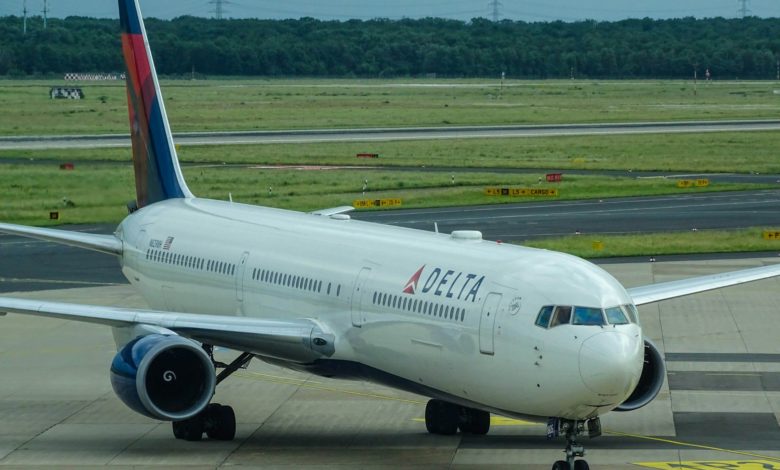Delta Cuts Profit Forecast, Triggering Turbulence in the Travel Sector

Delta Air Lines' recent nosedive stirred investor concern, casting a shadow over the entire travel sector. The airline slashed its 2024 profit forecast by a staggering 12-15%, citing a perfect storm of factors, including:
- Skyrocketing Fuel Costs: The global energy crisis has sent jet fuel prices soaring, eating into airlines' already tight margins. Delta expects fuel costs to be roughly $4 billion higher than previously anticipated, a significant blow to its bottom line.
- Labor Shortage Turbulence: Staffing challenges continue to plague the industry, impacting flight schedules and operational efficiency. Pilot and mechanic shortages, exacerbated by post-pandemic burnout and training delays, are forcing airlines to cut back on flights and grapple with rising operational costs.
- Weakening Demand Worries: Consumer confidence is taking a hit from inflation and recession fears, potentially dampening travel plans. With discretionary spending tightening, business travel might also falter, further impacting airline revenue.
Beyond Delta
While Delta's woes may be cause for concern in the travel sector, analysts are cautioning investors against putting the entire sector in the same boat. Factors such as individual airline strategies, geographic exposure, and passenger demographics will play a crucial role in weathering the storm.
- Budget Carriers Bucking the Trend: Budget airlines like Spirit and Frontier, with their focus on cost-conscious travelers, might see an influx of passengers trading down from pricier options. Their low-cost model could provide some insulation against rising fuel costs.
- International Routes Offering Refuge: Airlines with strong international routes, particularly those catering to inbound travel, could also see some respite. The dollar's recent weakness makes overseas travel more affordable for Americans, potentially boosting demand for international flights.
Navigating the Storm
So, where does this leave investors? Here are some key strategies to consider:
- Diversify Your Portfolio: Don't put all your eggs in the airline basket. Spread your investments across different sectors and asset classes to mitigate risk. Consider adding defensive stocks like healthcare or consumer staples to your portfolio for stability.
- Seek Value Among the Clouds: Focus on airlines with strong balance sheets, proven management teams, and a history of weathering downturns. Smaller, more nimble carriers with flexible cost structures might also be worth considering.
- Embrace the Long View: While the short-term outlook may be choppy, the aviation industry has a proven track record of resilience. If you believe in the long-term growth potential of travel and tourism, consider staying invested and weathering the turbulence.
Delta's profit forecast downgrade serves as an important reminder of the challenges facing the airline industry. However, with careful analysis, strategic diversification, and a long-term perspective, investors can still navigate the turbulence and find opportunities for growth in this dynamic sector.




